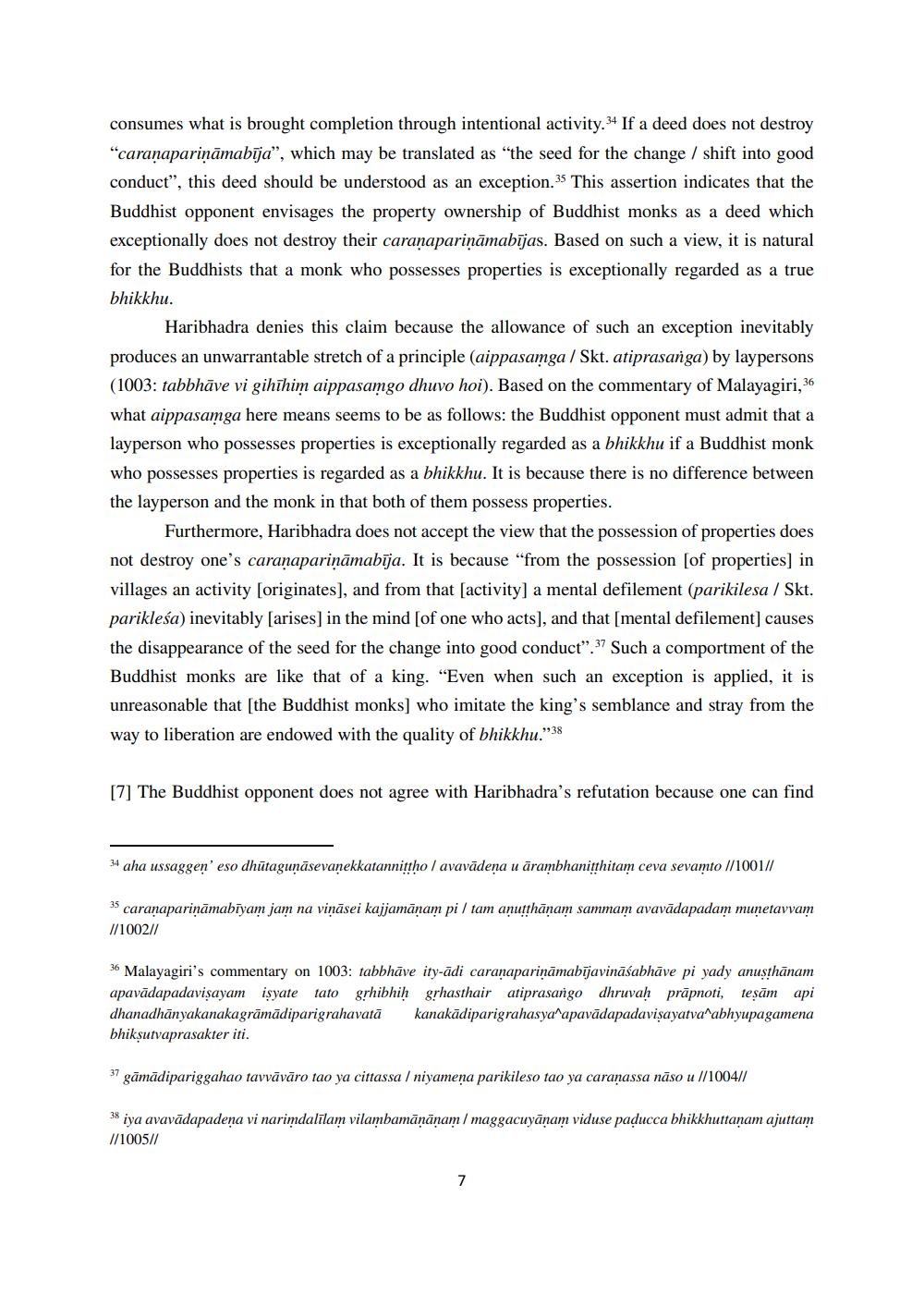________________
consumes what is brought completion through intentional activity. 34 If a deed does not destroy "caranapariņāmabīja”, which may be translated as "the seed for the change / shift into good conduct", this deed should be understood as an exception.35 This assertion indicates that the Buddhist opponent envisages the property ownership of Buddhist monks as a deed which exceptionally does not destroy their caranapariņāmabījas. Based on such a view, it is natural for the Buddhists that a monk who possesses properties is exceptionally regarded as a true bhikkhu.
Haribhadra denies this claim because the allowance of such an exception inevitably produces an unwarrantable stretch of a principle (aippasamga/ Skt. atiprasanga) by laypersons (1003: tabbhāve vi gihīhim aippasamgo dhuvo hoi). Based on the commentary of Malayagiri, 36 what aippasamga here means seems to be as follows: the Buddhist opponent must admit that a layperson who possesses properties is exceptionally regarded as a bhikkhu if a Buddhist monk who possesses properties is regarded as a bhikkhu. It is because there is no difference between the layperson and the monk in that both of them possess properties.
Furthermore, Haribhadra does not accept the view that the possession of properties does not destroy one's caranapariņāmabīja. It is because "from the possession [of properties) in villages an activity (originates), and from that [activity] a mental defilement (parikilesa / Skt. parikleśa) inevitably [arises) in the mind [of one who acts), and that (mental defilement] causes the disappearance of the seed for the change into good conduct". 37 Such a comportment of the Buddhist monks are like that of a king. "Even when such an exception is applied, it is unreasonable that (the Buddhist monks] who imitate the king's semblance and stray from the way to liberation are endowed with the quality of bhikkhu."38
[7] The Buddhist opponent does not agree with Haribhadra's refutation because one can find
34 aha ussaggen' eso dhūtagunāsevanekkatannittho I avavādena u ārambhanitthitam ceva sevamto //1001//
35 caranaparināmabiyam jam na viņāsei kajjamānam pi / tam anutthānam sammam avavādapadam munetavvam //100211
36 Malayagiri's commentary on 1003: tabbhāve ity-ādi caranapariņāmabījavināśabhāve pi yady anusthānam apavādapadavisayam isyate tato grhibhih grhasthair atiprasango dhruvah prāpnoti, teşām api dhanadhānyakanaka grāmādiparigrahavatā kanakādiparigrahasya apavādapadavişayatva"abhyupagamena bhiksutvaprasakter iti.
37 gāmādipariggahao tavvāvāro tao ya cittassa / niyamena parikileso tao ya caranassa nāso u //1004//
38 iya avavādapadeņa vi narimdalīlam vilambamāṇānam/ maggacuyāṇam viduse paducca bhikkhuttanam ajuttam //1005/1




